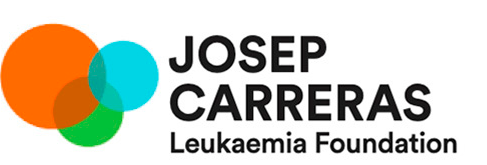Chemotherapy
Chemotherapy is one of the treatment regimens used for malignant diseases. It is based on the use of combinations of drugs that target rapidly growing and dividing cells such as cancer cells.
It is a broad class of cancer treatments that works by preventing cancer cells from growing, dividing and forming more cells. But there are many types of chemotherapy depending on the type of cancer, the way it is administered, etc…
The information provided on www.fcarreras.org is intended to support, not replace, the relationship that exists between patients/visitors to this website and their physician.
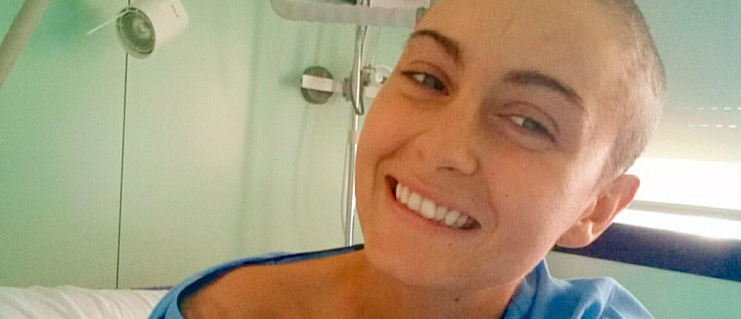
What is chemotherapy and what is its purpose?
Chemotherapy is a set of drugs that, in combination, have the function of:
- Slowing down cell growth and thus controlling and reducing the side effects caused by the disease.
- Prevent the spread of cancer cells (ability to metastasise).
- Kill the malignant cells and achieve remission of the disease and, if sustained, cure.
How is chemotherapy administered?
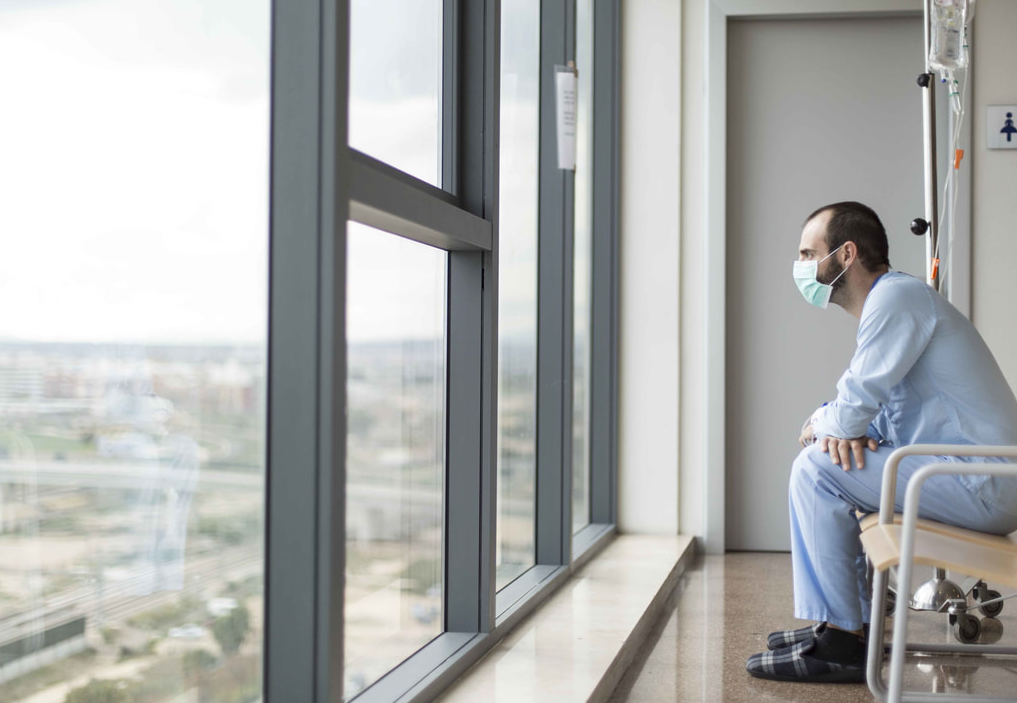 Chemotherapy is a systemic drug. This means that it travels through the bloodstream and reaches all parts of the body. Although chemotherapy treatment schedules vary according to the indication, one or more drugs are usually administered in cycles. This means that the patient receives, for example, chemotherapy for one to several days (consecutively or at intervals) every 3 to 4 weeks, which gives the body time to regenerate with healthy cells and allows for better tolerance to the treatment.
Chemotherapy is a systemic drug. This means that it travels through the bloodstream and reaches all parts of the body. Although chemotherapy treatment schedules vary according to the indication, one or more drugs are usually administered in cycles. This means that the patient receives, for example, chemotherapy for one to several days (consecutively or at intervals) every 3 to 4 weeks, which gives the body time to regenerate with healthy cells and allows for better tolerance to the treatment.
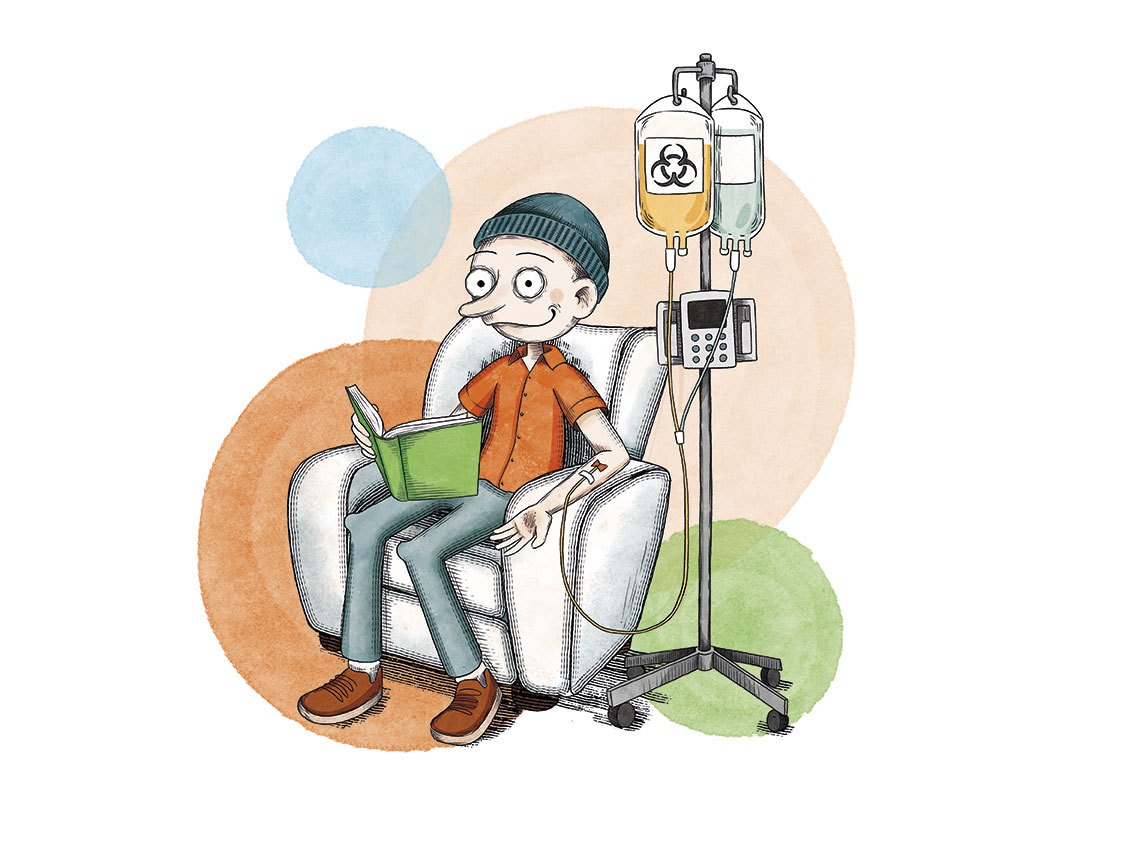 Depending on the type of chemotherapy, it can be administered on an outpatient basis at the patient’s home or in the day hospital, although in some cases it is necessary to admit the patient.
Depending on the type of chemotherapy, it can be administered on an outpatient basis at the patient’s home or in the day hospital, although in some cases it is necessary to admit the patient.
It can be administered by different routes:
- Oral chemotherapy: in the form of tablets, capsules or solution.
- Topical chemotherapy: in the form of creams or ointments.
- Intrathecal chemotherapy: to reach cells in the central nervous system, the drug is delivered directly into the cerebrospinal fluid through a lumbar (lower spinal) puncture.
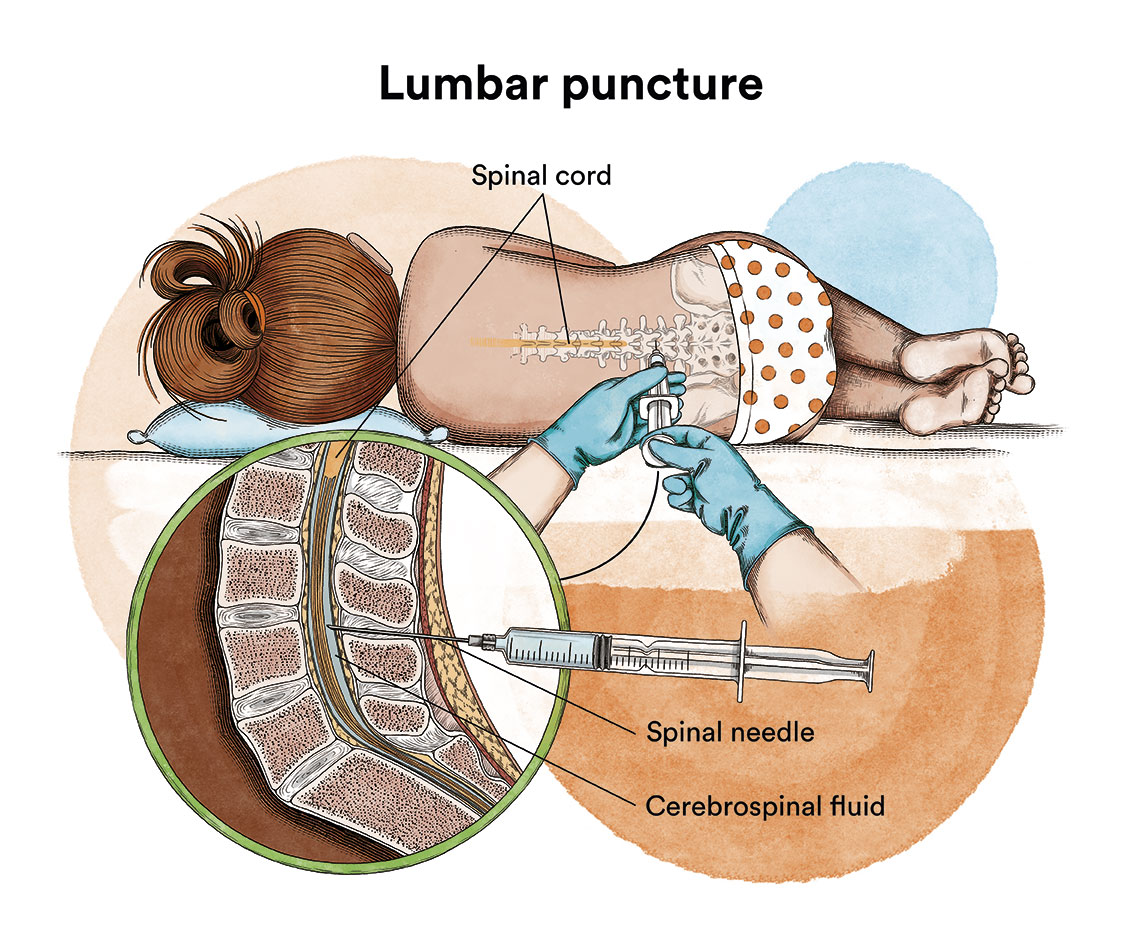
- Subcutaneous chemotherapy: in injectable form.
- Intravenous chemotherapy: for patients who need to administer drugs very repeatedly, it is sometimes necessary to place a central line (catheter (content in spanish)) in one of the large veins in the arm, chest or neck. More info on our blog.
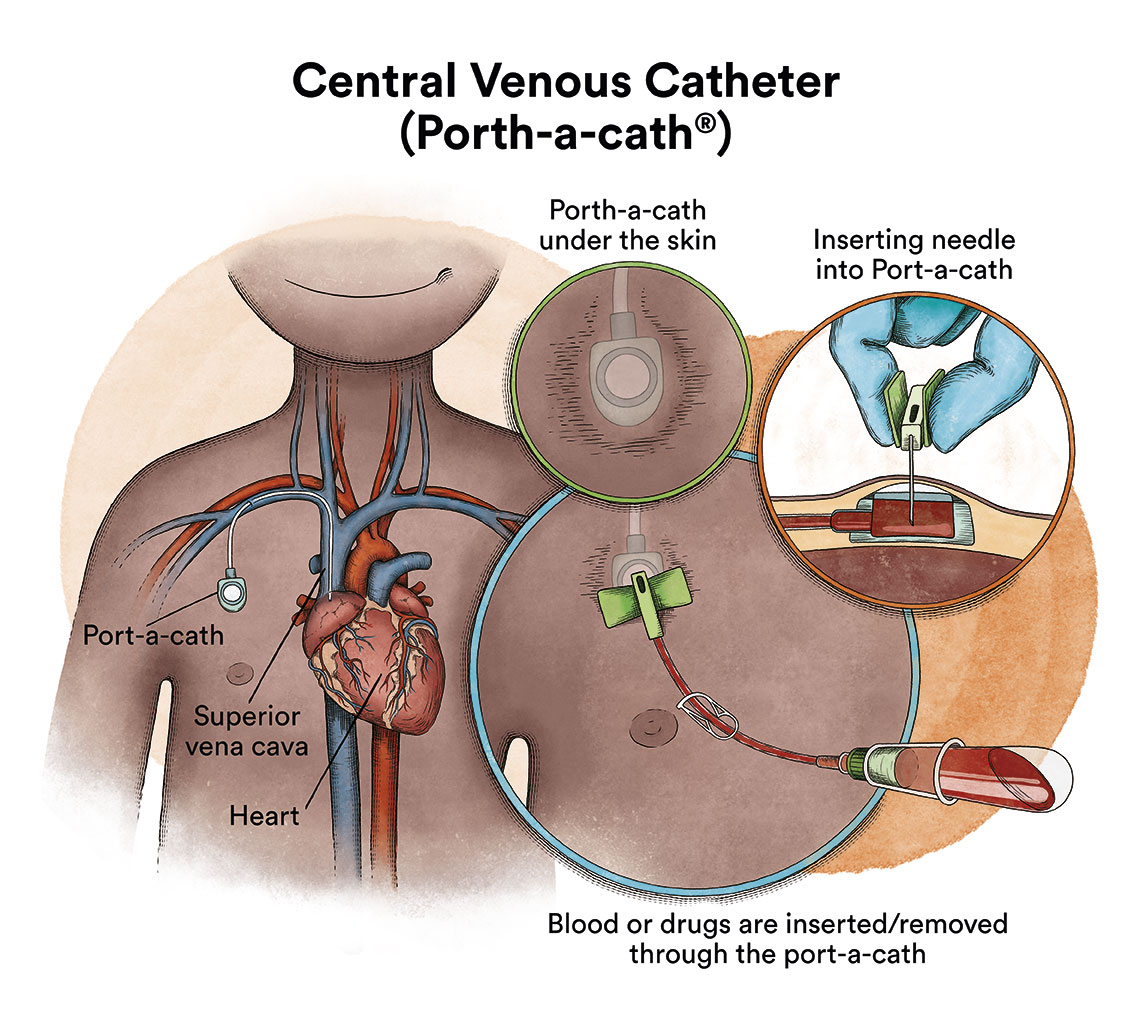
There are other types of drugs besides chemotherapy that also treat cancer, such as hormone therapy, immunotherapy and targeted therapies. Sometimes haematologists use chemotherapy along with another type of drug in a person’s treatment plan. These categories of drugs work in different ways to treat cancer, and their side effects are often different from those of chemotherapy.
What are the side effects?
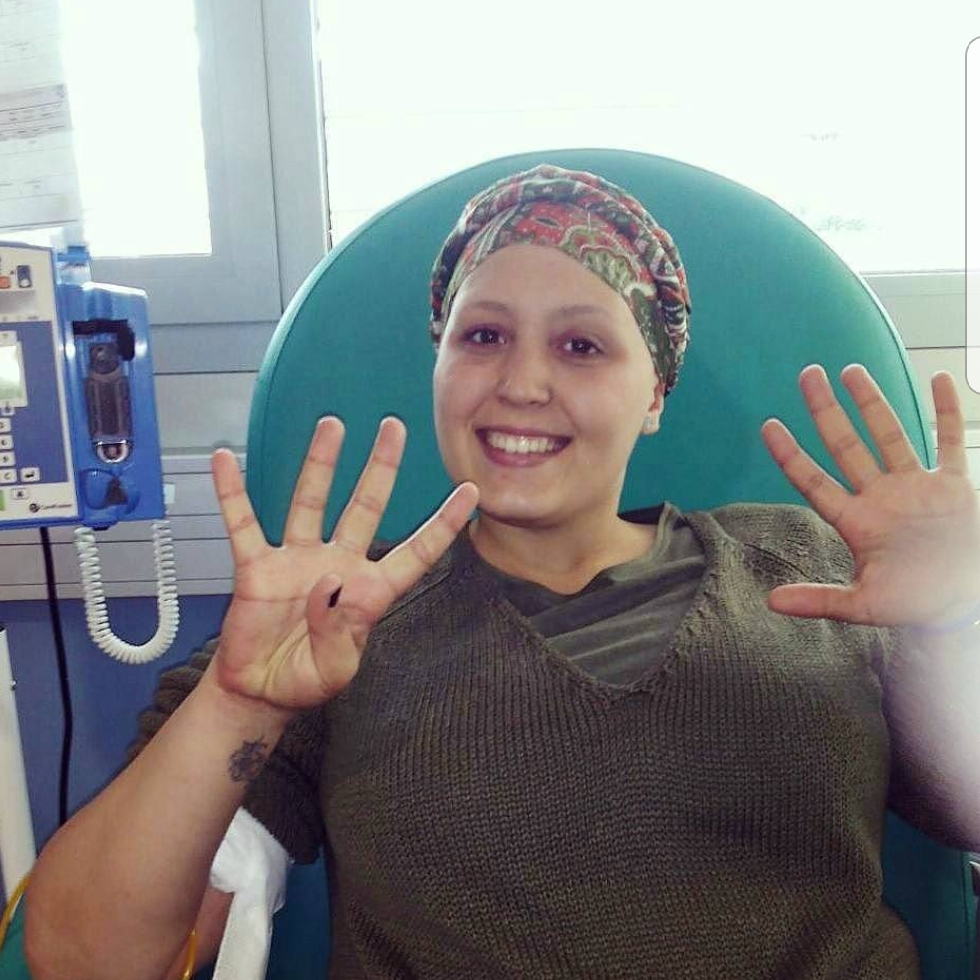 Because these drugs are not selective for cancer cells, their effects are also seen in healthy cells in the body that have a high turnover rate. This partly explains the side effects of chemotherapy, which can vary from person to person and usually resolve after treatment has ended. It is important to find out from the treating medical team about the specific side effects of the drugs the patient will receive.
Because these drugs are not selective for cancer cells, their effects are also seen in healthy cells in the body that have a high turnover rate. This partly explains the side effects of chemotherapy, which can vary from person to person and usually resolve after treatment has ended. It is important to find out from the treating medical team about the specific side effects of the drugs the patient will receive.
Some of the most common side effects are described below:
- Nausea and vomiting: usually occur during the administration of the medicines and up to a few days after the end of the treatment. They have a good response to the drugs used to prevent them.
- Hair loss: it is common for the entire body surface to be affected. After finishing the treatment, the hair may grow in a different colour, shape or texture than before. See Aesthetic Oncology Manual (content in spanish).
- Altered blood counts: blood cells are often decreased. Thus, a drop in red blood cells will lead to symptoms of anaemia, a decrease in white blood cells will make you susceptible to infections, and a drop in platelets could lead to spontaneous bleeding. For this reason, blood and platelet transfusions and antibiotic treatment may be necessary in some cases.
- Mucositis: chemotherapy causes sloughing of the cells lining the entire gastrointestinal tract and may cause mouth sores and diarrhoea. Therefore, gentle care of the gums and teeth and keeping well hydrated are essential. See Manual on the Prevention and treatment of oral mucositis (content in spanish).
- Fertility and sexuality: sexual desire normally decreases during treatment and chemotherapy is toxic to reproductive cells. Chemotherapy often affects women’s menstrual cycles, with irregular periods that may even cease completely. It can also cause menopausal symptoms such as hot flushes and vaginal dryness. In some cases, fertilised eggs or ovarian tissue may be frozen in view of a possible future pregnancy. In men, it can affect sperm, so it is recommended to freeze sperm before starting treatment. It is advisable to use contraception, as chemotherapy may cause birth defects. See Fertility handbook (content in spanish) and Leukaemia and sexuality (content in spanish).
- Mood swings: chemotherapy alters the normal course of daily life, therefore in some cases patients have alterations in their emotional stability such as sadness or fear. It is important that patients discuss this fact with their treatment team, so they can offer the patients and their family members the necessary support. More info on our blog.
What can and should you do if you receive chemotherapy?
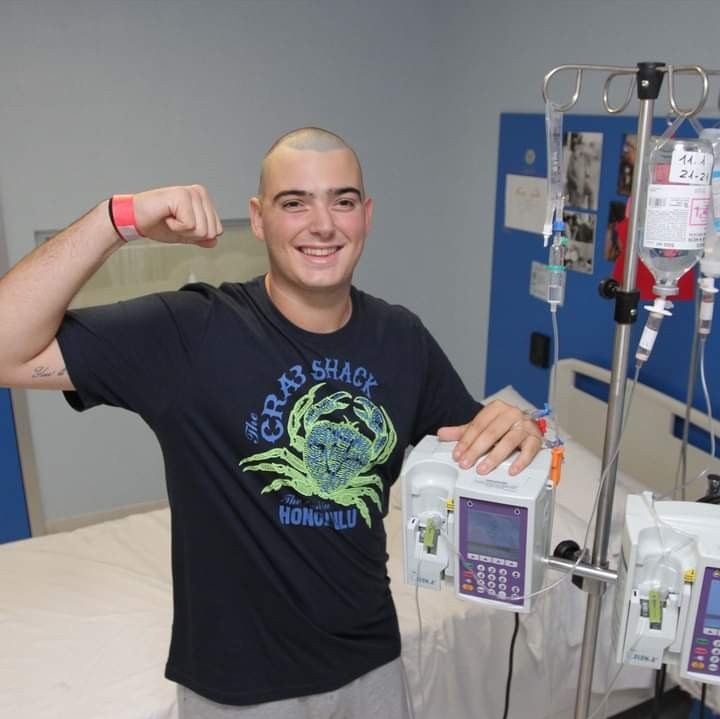 It is very important that during treatment the patient follows a healthy lifestyle, gets enough rest, eats well (content in spanish), stays hydrated and follows the recommendations provided by their haematologist. Bear in mind, regarding food, that some chemotherapies can alter the sense of taste so there are foods that may taste different. Before starting any other medication or dietary supplement the patient should seek information regarding whether it may interfere with their treatment.
It is very important that during treatment the patient follows a healthy lifestyle, gets enough rest, eats well (content in spanish), stays hydrated and follows the recommendations provided by their haematologist. Bear in mind, regarding food, that some chemotherapies can alter the sense of taste so there are foods that may taste different. Before starting any other medication or dietary supplement the patient should seek information regarding whether it may interfere with their treatment.
It is important to know if there are foods that can interfere with your medication. It may seem secondary, but did you know that grapefruit, for example, has the potential to interfere with the proper functioning of some chemotherapies? That is why it is important to discuss with your haematologist and your hospital’s nutrition team what you can and cannot eat.
Always warn and ask before taking herbal teas, medicines you already take or other over-the-counter medicines and even medicinal plants. This is important to avoid drug interactions and other unwanted side effects.
Many cancer patients are at high risk of developing oral complications due to cancer treatment or the side effects of cancer treatment. If possible, before receiving treatment, visit your dentist. See Manual on Oral Hygiene (content in spanish).
Fear of chemotherapy?
It is normal to be afraid of side effects when starting a cancer treatment, especially during the first chemotherapy session. Remember that not all treatments are the same and that it is important not to make comparisons: each case is different. A good idea is to make a list of all your fears and doubts and raise them with your medical team. In addition, most haematology departments have specialised psycho-oncologists and you can make an appointment with them. In addition, we also recommend that you contact some patient associations and foundations that can help you, offer you services or put you in contact with other patients of your age or who live locally.
Links of interest on other topics related to chemotherapy
Chemotherapy to Treat Cancer. National Cancer Institute
Chemotherapy. Cleveland Clinic
Chemotherapy. American Cancer Society
Chemotherapy. Macmillan Cancer Support
Links of interest: local/provincial or state entities that can provide you with resources and services specialised in leukaemia or cancer patients:
In Spain there is a large network of associations for haematological cancer patients that, in many cases, can inform you, advise you and even carry out certain procedures. These are the contacts of some of them by Autonomous Communities:
All these organisations are external to the Josep Carreras Foundation.
STATE
- AMILO (Asociación Española de Amiloidosis)
- AEAL (ASOCIACIÓN ESPAÑOLA DE AFECTADOS POR LINFOMA, MIELOMA y LEUCEMIA)
- AECC (ASOCIACIÓN ESPAÑOLA CONTRA EL CÁNCER). Present is the different provinces and in many municipalities. Contact with the nearest branch or call 900 100 036 (24h).
- AELCLES (Agrupación Española contra la Leucemia y Enfermedades de la Sangre)
- CEMMP (Comunidad Española de Pacientes de Mieloma Múltiple)
- Josep Carreras Leukaemia Foundation
- FUNDACIÓN SANDRA IBARRA
- GEPAC (GRUPO ESPAÑOL DE PACIENTES CON CÁNCER)
- MPN España (Asociación de Afectados Por Neoplasias Mieloproliferativas Crónicas)
ANDALUCÍA
- AECC (ASOCIACIÓN ESPAÑOLA CONTRA EL CÁNCER). Present is the different provinces and in many municipalities. Contact the nearest branch.
- ALUSVI (ASOCIACIÓN LUCHA Y SONRÍE POR LA VIDA). Sevilla
- APOLEU (ASOCIACIÓN DE APOYO A PACIENTES Y FAMILIARES DE LEUCEMIA). Cádiz
ARAGÓN
- AECC (ASOCIACIÓN ESPAÑOLA CONTRA EL CÁNCER). Present is the different provinces and in many municipalities. Contact the nearest branch.
- ASPHER (ASOCIACIÓN DE PACIENTES DE ENFERMEDADES HEMATOLÓGICAS RARAS DE ARAGÓN)
- DONA MÉDULA ARAGÓN
ASTURIAS
- AECC (ASOCIACIÓN ESPAÑOLA CONTRA EL CÁNCER). Present is the different provinces and in many municipalities. Contact the nearest branch.
- ASTHEHA (ASOCIACIÓN DE TRASPLANTADOS HEMATOPOYÉTICOS Y ENFERMOS HEMATOLÓGICOS DE ASTURIAS)
CANTABRIA
- AECC (ASOCIACIÓN ESPAÑOLA CONTRA EL CÁNCER). Present is the different provinces and in many municipalities. Contact the nearest branch.
CASTILLA LA MANCHA
- AECC (ASOCIACIÓN ESPAÑOLA CONTRA EL CÁNCER). Present is the different provinces and in many municipalities. Contact the nearest branch.
CASTILLA LEÓN
- ABACES (ASOCIACIÓN BERCIANA DE AYUDA CONTRA LAS ENFERMEDADES DE LA SANGRE)
- AECC (ASOCIACIÓN ESPAÑOLA CONTRA EL CÁNCER). Present is the different provinces and in many municipalities. Contact the nearest branch.
- ALCLES (ASOCIACIÓN LEONESA CON LAS ENFERMEDADES DE LA SANGRE). León.
- ASCOL (ASOCIACIÓN CONTRA LA LEUCEMIA Y ENFERMEDADES DE LA SANGRE). Salamanca.
CATALUÑA
- ASSOCIACIÓ FÈNIX. Solsona
- FECEC (FEDERACIÓ CATALANA D’ENTITATS CONTRA EL CÁNCER
- FUNDACIÓ KÁLIDA. Barcelona
- FUNDACIÓ ROSES CONTRA EL CÀNCER. Roses
- LLIGA CONTRA EL CÀNCER COMARQUES DE TARRAGONA I TERRES DE L’EBRE. Tarragona
- MielomaCAT
- ONCOLLIGA BARCELONA. Barcelona
- ONCOLLIGA GIRONA. Girona
- ONCOLLIGA COMARQUES DE LLEIDA. Lleida
- ONCOVALLÈS. Vallès Oriental
- OSONA CONTRA EL CÀNCER. Osona
- SUPORT I COMPANYIA. Barcelona
- VILASSAR DE DALT CONTRA EL CÀNCER. Vilassar de Dalt
VALENCIAN COMMUNITY
- AECC (ASOCIACIÓN ESPAÑOLA CONTRA EL CÁNCER). Present is the different provinces and in many municipalities. Contact the nearest branch.
- ASLEUVAL (ASOCIACIÓN DE PACIENTES DE LEUCEMIA, LINFOMA, MIELOMA Y OTRAS ENFERMEDADES DE LA SANGRE DE VALENCIA)
EXTREMADURA
- AECC (ASOCIACIÓN ESPAÑOLA CONTRA EL CÁNCER). Present is the different provinces and in many municipalities. Contact the nearest branch.
- AFAL (AYUDA A FAMILIAS AFECTADAS DE LEUCEMIAS, LINFOMAS; MIELOMAS Y APLASIAS)
- AOEX (ASOCIACIÓN ONCOLÓGICA EXTREMEÑA)
GALICIA
- AECC (ASOCIACIÓN ESPAÑOLA CONTRA EL CÁNCER). Present is the different provinces and in many municipalities. Contact the nearest branch.
- ASOTRAME (ASOCIACIÓN GALLEGA DE AFECTADOS POR TRASPLANTES MEDULARES)
BALEARIC ISLANDS
- ADAA (ASSOCIACIÓ D’AJUDA A L’ACOMPANYAMENT DEL MALALT DE LES ILLES BALEARS)
- AECC (ASOCIACIÓN ESPAÑOLA CONTRA EL CÁNCER). Present is the different provinces and in many municipalities. Contact the nearest branch.
CANARY ISLANDS
- AECC (ASOCIACIÓN ESPAÑOLA CONTRA EL CÁNCER). Present is the different provinces and in many municipalities. Contact the nearest branch.
- AFOL (ASOCIACIÓN DE FAMILIAS ONCOHEMATOLÓGICAS DE LANZAROTE)
- FUNDACIÓN ALEJANDRO DA SILVA
LA RIOJA
- AECC (ASOCIACIÓN ESPAÑOLA CONTRA EL CÁNCER). Present is the different provinces and in many municipalities. Contact the nearest branch.
MADRID
- AECC (ASOCIACIÓN ESPAÑOLA CONTRA EL CÁNCER). Present is the different provinces and in many municipalities. Contact the nearest branch.
- AEAL (ASOCIACIÓN ESPAÑOLA DE LEUCEMIA Y LINFOMA)
- CRIS CONTRA EL CÁNCER
- FUNDACIÓN LEUCEMIA Y LINFOMA
MURCIA
- AECC (ASOCIACIÓN ESPAÑOLA CONTRA EL CÁNCER). Present is the different provinces and in many municipalities. Contact the nearest branch.
NAVARRA
- AECC (ASOCIACIÓN ESPAÑOLA CONTRA EL CÁNCER). Present is the different provinces and in many municipalities. Contact the nearest branch.
BASQUE COUNTRY
- AECC (ASOCIACIÓN ESPAÑOLA CONTRA EL CÁNCER). Present is the different provinces and in many municipalities. Contact the nearest branch.
- PAUSOZ-PAUSO. Bilbao
AUTONOMOUS CITIES OF CEUTA AND MELILLA
- AECC CEUTA (ASOCIACIÓN ESPAÑOLA CONTRA EL CÁNCER)
- AECC MELILLA (ASOCIACIÓN ESPAÑOLA CONTRA EL CÁNCER)
Support and assistance
We also invite you to follow us through our main social media (Facebook, Twitter and Instagram) where we often share testimonies of overcoming this disease.
If you live in Spain, you can also contact us by sending an e-mail to imparables@fcarreras.es so that we can help you get in touch with other people who have overcome this disease.
* In accordance with Law 34/2002 on Information Society Services and Electronic Commerce (LSSICE), the Josep Carreras Leukemia Foundation informs that all medical information available on www.fcarreras.org has been reviewed and accredited by Dr. Enric Carreras Pons, Member No. 9438, Barcelona, Doctor in Medicine and Surgery, Specialist in Internal Medicine, Specialist in Hematology and Hemotherapy and Senior Consultant of the Foundation; and by Dr. Rocío Parody Porras, Member No. 35205, Barcelona, Doctor in Medicine and Surgery, Specialist in Hematology and Hemotherapy and attached to the Medical Directorate of the Registry of Bone Marrow Donors (REDMO) of the Foundation).
Become a member of the cure for leukaemia!

